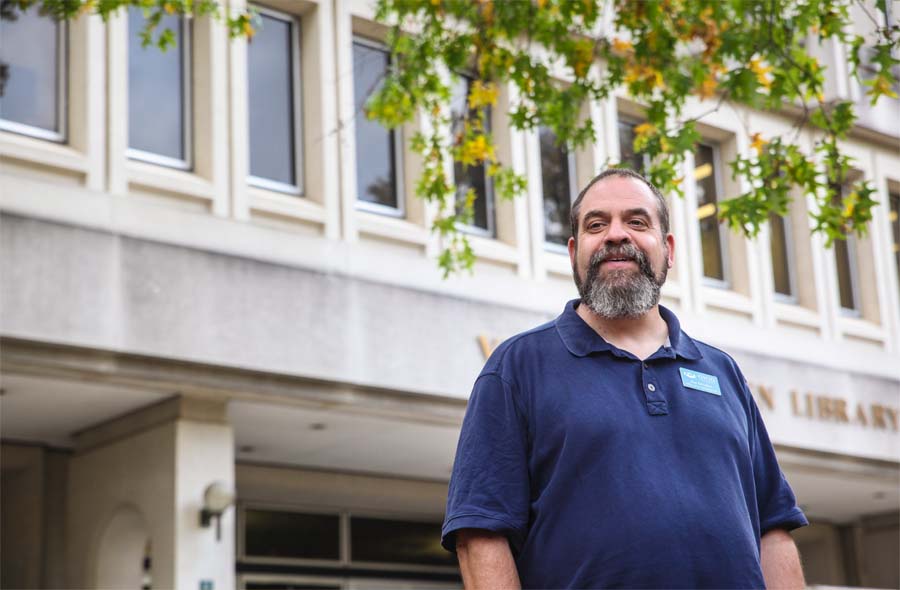Have you ever wondered exactly what a university ombudsperson does?
“It starts with a lot of listening,” says Ohio University Ombudsperson Mac Stricklen, who half-jokingly refers to the ombuds as “the official office of ‘I wasn’t sure where to go with this.’” A student feels that a professor has treated them unfairly; a faculty member has concerns about promotion and tenure; office staff are not getting along with one another; an alumnus/na needs help getting a transcript released.
Once other official avenues have been exhausted, problems like these might end up in the Ombuds office because the ombuds exists to make sure every member of the university community receives fair and equitable treatment.
“I’m the mender and maintainer of relationships,” says Stricklen, BS ’95, MED ’97, noting that it is often a relationship issue that is central to the problem he’s been approached to consider. “Almost everything someone brings me—even if it’s a technological or procedural thing—often comes down to a relationship that is not working the way one or both think (it should be) working.”

Ohio University Ombudsman Mac Stricklen, BS ’95, MED ’97, mediates and repairs relationships across the University community. Photo by Ellee Achten, BSJ ’14, MA ’17
Stricklen points to the paradox of the Golden Rule: Often we do treat others as we would like to be treated, but often that is not necessarily how they want to be treated. In service to untangling this paradox, Stricklen serves as a deep listener, a sounding board, and a creative problem solver who approaches an issue not through the lens of evaluating one’s performance evaluation, but through the lens of conflict resolution.
“You can’t be an advocate for the person or an advocate for the institution, but you can be an advocate for fairness,” he says.
“Mac is amazing. He is such a good listener,” says College of Fine Arts Dean Matthew Shaftel. He appreciates the ombuds’s role as a neutral third party, a person who is neither co-worker nor boss. “He makes all the people in the room feel validated and listened to.” Shaftel says he readily relies on the ombuds if a professional conflict in his college is exhibiting a strong emotional component. “There are two dialogues,” Shaftel says. “There’s the surface one and there’s the emotional one. Mac is…evaluating the emotional one.”
In the end, many conflicts that employ the ombuds’s services are resolved without appealing to legal or human resource professionals, saving time and bandwidth. “Often what (people) are asking me to do is double check the fairness,” Stricklen says. “The good news is that I almost always find it.”
Illustration by Andrea Ucini



